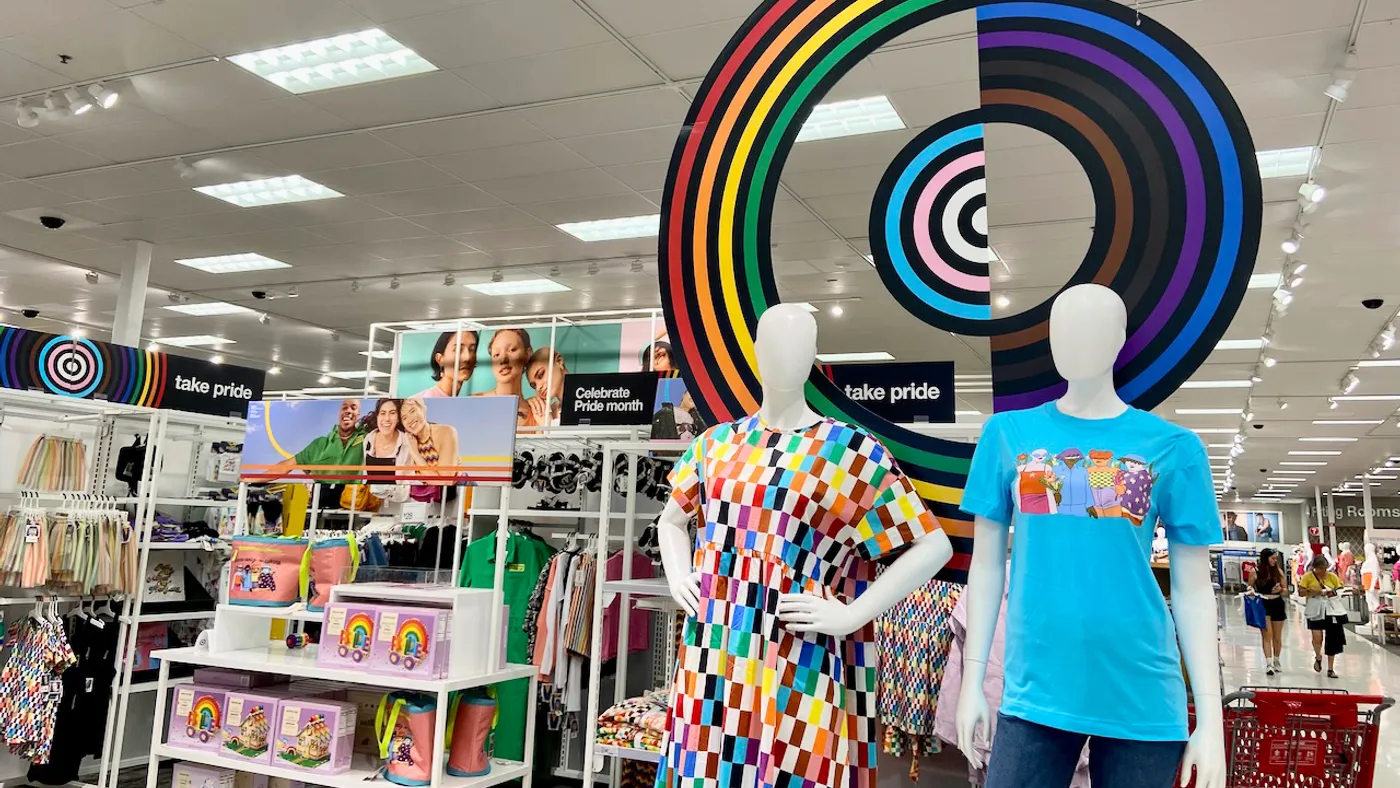In recent years, extremist groups like the Proud Boys have been fueling hateful sentiment against the LGBTQ+ community as they focus on cultural issues following the Jan. 6, 2021, riot at the Capitol. In June, the vitriol caught up to retailers attempting to celebrate Pride Month.
Most notably, Target pulled or altered its Pride displays at some locations, after people rampaged through its stores, confronting workers and damaging signage and goods.
“The state of retail is fragile and frontline workers do not get paid enough to be faced with this insanity,” Liza Amlani, principal and co-founder of Retail Strategy Group, said by email. “But the reality is that there are many unhinged people that are using Pride to unleash anger and hate on the community. Target needs to be vocal on addressing hate in all forms, and pulling merchandise gives in to the bullying.”
Despite more than a decade of what many in the community viewed as meaningful allyship, Target fell silent in the aftermath, and has yet to affirm its dedication to the community amid calls for it to do so from the community itself and even some politicians.
Perhaps Target wanted its Pride merchandising to speak for itself. After all, as seen on a tour of retail stores in Portland, Maine, toward the end of Pride Month, even Target’s diminished collection was more extensive than most retail chains. Despite its pullback, the company offered some of the most prominent and extensive Pride merchandising in retail, both online and in stores. Signage was large, and the assortment (even after Target removed several items that caught the attention of right-wing protestors) was varied.
Indeed, at Target, at a store in South Portland, Maine, even the pet section got its own small Pride selection. The small display sported signage and merchandise that surpassed the effort at many other stores, including Walgreens and others that offered smaller, more random selections. While Walmart enjoyed some favorable press when its chief merchant promised not to alter its Pride displays or security measures despite ongoing backlash, its campaign paled in comparison to its rival.
That counts for something, according to Amlani.
“Target is the best for a reason and people have everything to do with it,” she said. “But pulling product for the safety of their guests and employees was not the right thing to do. Hiring more security and banning the bullies, vandals and terrorists would have been the better course of action.”
However, its strong merchandising isn’t enough to make up for its ensuing silence, she warned.
“Target has some repair to do on its relationship with their communities, guests and employees,” she said. “Silence is not only complacency; it is endorsing hateful behavior.”
In downtown Portland, compared to the local Maine Mall and various strip centers, expressions of solidarity during Pride Month were commonplace and often vociferous. According to Amlani, independent retailers that celebrate Pride may have more freedom than corporate entities like Target or Walmart.
“I believe it’s a combination of both bravery and freedom,” she said. “Independent retailers and businesses have more to lose than a large retailer. They could face hate, vandalism, or worse and go out of business.”
Pride Month may be over for this year, but the community and its allies are still waiting to hear from Target, according to Bob Witeck, president of Witeck Communications, who for 30 years has specialized in LGBTQ+-related communications strategy and market research.
“Target is witnessing the worst of any culture backlash – inflaming all sides. Target should not suffer any irreparable damage from this season, if they go forward uniting their words and deeds,” he said by email. “The market values authenticity, and this is what LGBTQ customers look for in any brand or ally. Target knows its future lies with younger generations, and that should help strengthen its backbone down the road.”






